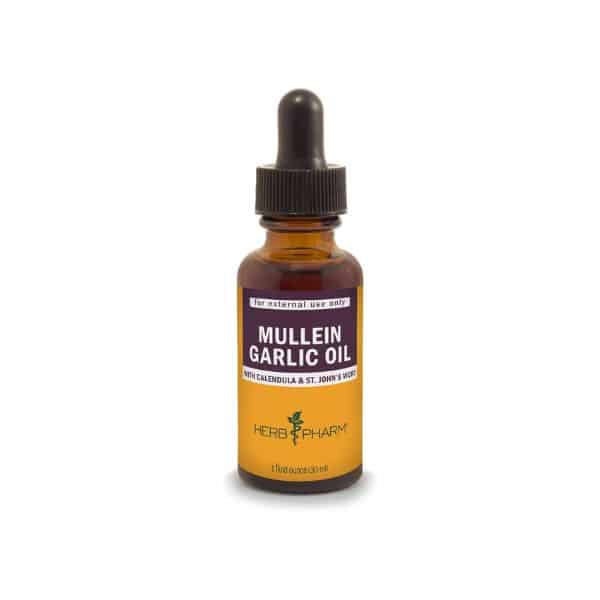

If your dog has an inflamed ear or is displaying other symptoms, you might wonder how to get rid of the ear infection with home remedies. There are three types of ear infections, and you can treat some at home. But if your pup has a severe infection, they need treatment from a vet. I explore the types of infections, their causes and symptoms, and when you need to take your pup to the vet. I also share some of the most effective home remedies for dog ear infections and answer the most frequently asked questions about them. So, let’s take a closer look.
If you’re looking for over-the-counter dog ear infection treatments at home, check out our comprehensive guide on how to treat ear infections without a vet. Our experts have reviewed some of the best ear cleaning solutions, medicated ear flush, wipes, and more.
What Is An Ear Infection?
Contents
Ear infections aren’t uncommon in dogs, and the shape of their ears and ear canals plays a significant role in why they get them. There are three types of ear infections:
- Otitis Externa. This is the most common type of ear infection, and it occurs when the external part of the ear canal becomes inflamed. Thankfully, this is the visible part of the ear, making it easier to identify inflammation. But if left untreated, it can progress to otitis media.
- Otitis Media. The next most common ear infection in dogs is caused by untreated otitis externa, which has progressed further into the canal. Another cause is when the eardrum is penetrated by a foreign object, like grass seed or foxtails.
- Otitis Interna. An ear infection in the inner ear canal is called otitis interna, the final stage of an ear infection. Otitis interna is the most severe infection and can lead to loss of balance, hearing loss, and brain inflammation, which can also affect eyesight, neurological problems, and facial paralysis.
If you suspect your dog has an ear infection for the first time or it happens rarely, you should visit your veterinarian for a consultation. They must identify the cause and severity of the infection to treat your dog’s ear effectively. You should never treat a dog ear infection at home without consulting your vet first, as you could worsen it.
Symptoms Of Dog Ear Infections
The symptoms of an ear infection vary depending on the pup and the type of ear infection they have. The first and most common signs of otitis externa are scratching at the ear, excessive head shaking, whining, and restlessness. Other symptoms to look for, which might suggest the infection has spread further into the ear canal, include:
- Redness and swelling inside the canal
- Crusting or scabs in the ear
- Discharge
- Odor
Did You Know?
Pet insurance covers the vet exam and treatment for ear infections, including antibiotics. And because ear infections are curable, some insurers cover them even if your dog has been diagnosed with one before the policy’s effective date. Pet insurance is a great idea if your dog suffers from chronic ear infections, as it can help cover the treatment cost and other health conditions.
Causes Of Dog Ear Infections
There are many reasons why dogs develop ear infections. The most common cause is a surplus of bacteria or yeast trapped in the ears. Other common causes include wax buildup, environmental allergies, or a foreign object inside the canal. Ear mites can also cause ear infections in puppies but rarely adults. Dogs with hormonal disorders such as Cushing’s disease and hypothyroidism are also prone to chronic ear infections.
If you’re looking for a dog ear yeast infection home remedy, head to our yeast infection guide for prevention tips and advice.
According to the American Veterinary Medical Association (AVMA), research suggests that dogs with long ears are more likely to experience ear infections than those with erect ears. Certain breeds, including Cocker Spaniels, Poodles, and German Shepherd Dogs, are the most commonly affected. Dogs that enter the water more often are also more likely to experience ear infections.
When Should You Take Your Dog To The Vet?
It’s essential to take your dog to the vet if they exhibit the above symptoms and has never had an ear infection before or gets them rarely. If your dog has had numerous ear infections and your vet has identified the cause, it is probably okay for you to treat an ear infection at home. But you still need the go-ahead from your vet to administer any at-home ear infection treatment.
If your dog’s symptoms do not improve after applying home remedies, it’s essential to take them to the vet, as they might need to prescribe medication to clear the infection. Ears are delicate, so please don’t wait until your dog is in agony before seeking treatment. In severe cases, your pup might need antibiotics for their ear infection. It’s important to do this before the infection spreads further into the ear canal.
Ear infections rarely clear up without intervention. Not only might your dog develop a more severe infection that’s harder to treat, but it could permanently damage their hearing and quality of life.
4 Home Remedies For Dog Ear Infections
You can offer a few natural remedies for dog ear infections at home. Some of these ingredients might be in your cupboard. If not, you can purchase all these ingredients at your local drug or grocery store. There are lots of home remedy ideas floating around online, but not all are safe for your pooch. Always research and consider your dog’s individual needs. But after lots of research, here are the most effective, tried and tested, safe options.
1. Apple Cider Vinegar

There’s a lot of conflicting information online about whether you can use apple cider vinegar to treat ear infections. But many vets state that you can use apple cider vinegar to clean dog ears. Not only does it cleanse the area, but it also has antifungal and antibacterial properties. Mix one part apple cider vinegar with one part distilled water to create a diluted solution. Soak a cotton ball and wipe it gently across the outer ear canal until it looks clean.
Never use undiluted apple cider vinegar, and do not use any vinegar-type solution on sores, open wounds, or extremely inflamed areas.
2. Green Tea
Cooled green tea can help soothe pain and reduce inflammation. Steep two bags of green tea in one cup of boiled water for several minutes. Let the mixture cool, then soak a cotton ball in the tea. Rub the cotton ball around the outer ear canal.
3. Mullein And Garlic Oil

Holistic veterinarians recommend using a garlic and mullein oil mixture to soothe and treat mild ear infections in dogs. Garlic extract has antifungal and antiviral properties, and studies have also found that both garlic and mullein plants possess antibacterial properties. You can purchase a ready-made mixture made from organic herbs such as Herb Pharm’s Mullein Garlic Oil. It is also relatively simple to make your own natural remedy for dog ear infections:
- Finely chop three cloves of garlic.
- Place the garlic pieces and 1/4 cup mullein flowers in a small saucepan and cover with olive oil.
- Heat the saucepan over a very low heat for three to four hours.
- Remove from the stove and let it cool.
- Strain the oil through cheesecloth into a small, clean dropper bottle.
- Put two to three drops into the ear canal and massage gently.
- Use the oil daily until symptoms improve.
To prevent the risk of botulism, the Centers for Disease Control and Prevention recommends refrigerating all homemade garlic and herb oils and discarding them after four days.
4. Oregano Oil
Oregano contains carvacrol and thymol, which have potent antibacterial and antifungal properties. Research from Veterinary Dermatology, an online peer journal, shows they are effective against known antibiotic-resistant bacterial strains in canines with otitis externa.
To create your own natural remedy for dog ear infections, mix one drop of oregano oil with 1/2 ounce of carrier oil or other solution, such as coconut oil, olive oil, or aloe vera juice, to make your homemade oregano remedy. However, some vets warn against making your own oregano oil mixture because it isn’t the right option for some dogs, and too much oregano oil can worsen symptoms. If you want to try this option, please speak to your vet for tailored advice for your pup.
Never use undiluted oregano oil in your pup’s ears, as it can cause extreme irritation, canal damage, and further problems.
Our Experience With Dog Ear Infections
Here is our experience with dog ear infections and a home remedy that worked for us.
My dog Bear, a Black Labrador Retriever, was prone to ear infections. After many rounds of antibiotics, my vet suggested using oregano oil. We noticed a marked improvement after giving him the oil. I diluted the oils with coconut oil, applied it topically, and gave it to him orally. We liked the oregano oil because it was natural, did not upset Bear’s stomach or irritate his skin, and was very effective in treating mild ear infections. Of course, we only used it under the supervision of the vet.
– Danielle DeGroot, Rescue Dog Parent & Writer For Canine Journal
How To Clean Your Dog’s Ears
Adopting a regular ear cleaning routine can help to prevent reoccurring dog ear and yeast infections. Check out our guide on the best dog ear-cleaning solutions to keep your pup’s ears healthy. Cleaning your dog’s ears is relatively simple. Watch this informative video by veterinary professionals on cleaning a dog’s ears at home.
Frequently Asked Questions
Ears are delicate and complex, so we know some of our readers still have questions about ear infections and home remedies. If you can’t see your question below, please ask us in the comments section, and our team will find the answer for you.
What’s The Best Home Remedy To Help Dog Ear Infection?
There is no best home remedy because all dogs are different. One dog might respond quickly to a DIY dog ear infection treatment at home, whereas it might not have any effect whatsoever on another pup. Once you’ve consulted with your vet about your dog’s ear problem, discuss whether a homemade remedy can help and which one they recommend.
How Long Do Home Remedies Take To Work?
How long it takes to work depends on your pup and the severity of the ear infection. Some owners see a difference within a day or two, whereas sometimes it can take one to two weeks. Please take your pet to the vet as soon as you notice any of the symptoms above.
What Shouldn’t Be Used To Treat Dog Ear Infections?
Although you may see contrary information online, veterinarians do not recommend rubbing alcohol, hydrogen peroxide, or witch hazel on your dog’s ears. Not only could this cause pain and worsen the infection, but it could also scare the dog enough not to allow you to investigate their ears again. You should also never use cotton swabs in their ear canal, which can spread infection and push debris further.
Can I Use Human Ear Drops?
No, you shouldn’t use any ear product meant for humans on your dog. It might contain ingredients that are harmful to dogs. Instead, stick to homemade natural remedies or products specifically made for dogs.
Consider Improving Your Dog’s Diet
A dog’s diet can heavily influence their health and well-being. Providing your dog with a high-quality diet can help keep their immune system strong and assist in fighting infections and other ailments. Alongside medication, vets suggest a diet upgrade for dogs with chronic ear infections. A great place to start your research is with our dietary guide on all-natural dog foods. Alternatively, many parents opt for fresh food diets as they often contain all-natural, more premium ingredients. You can sometimes tailor their recipes to suit your dog’s dietary needs. Adding probiotic supplements is another option to keep ear infections at bay.
Has your dog ditched the ear infection with one of these home remedies? Or do you have your own home remedy? We’d love to hear your thoughts and stories in our comment section below.
Why Trust Canine Journal?
Emma has over 20 years of experience with dogs and is the proud mom to two rescue pups, Bonkers and Chips. She has also worked as a professional dog walker and sitter for many years, caring for many dog breeds with different needs, including ear infections and skin allergies. Emma dedicates countless hours researching the latest pet care, health, food, and training developments to keep her two best buddies and other doggy clients as happy and healthy as possible.